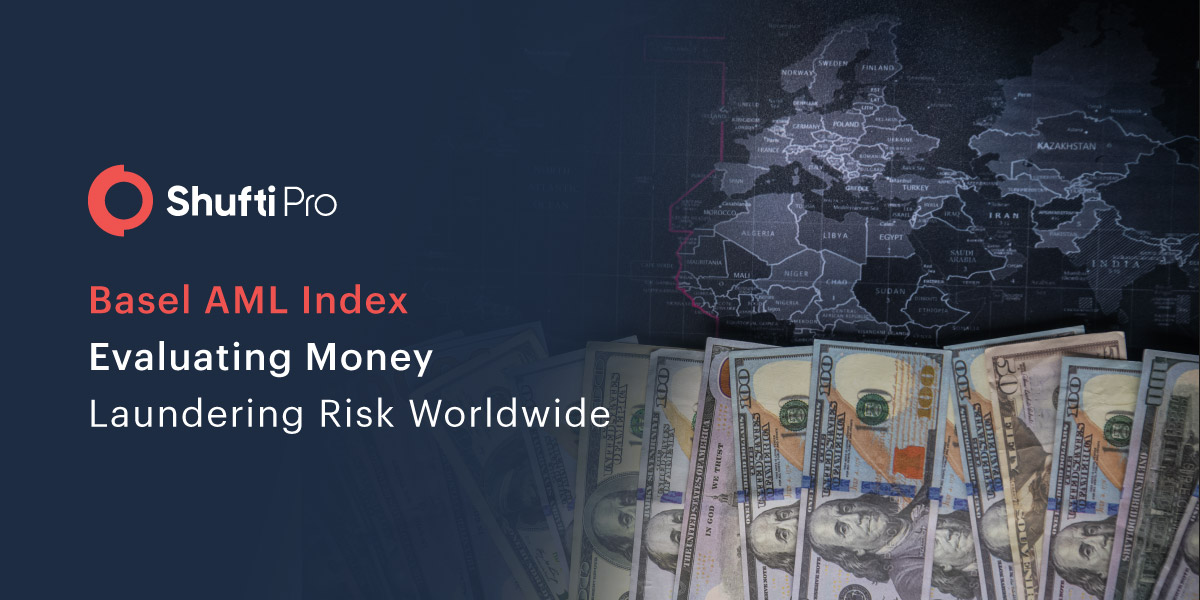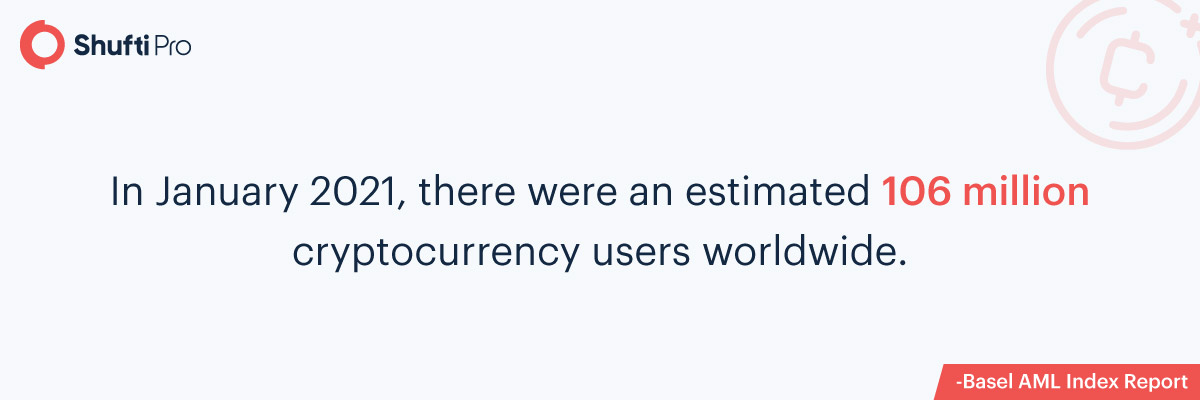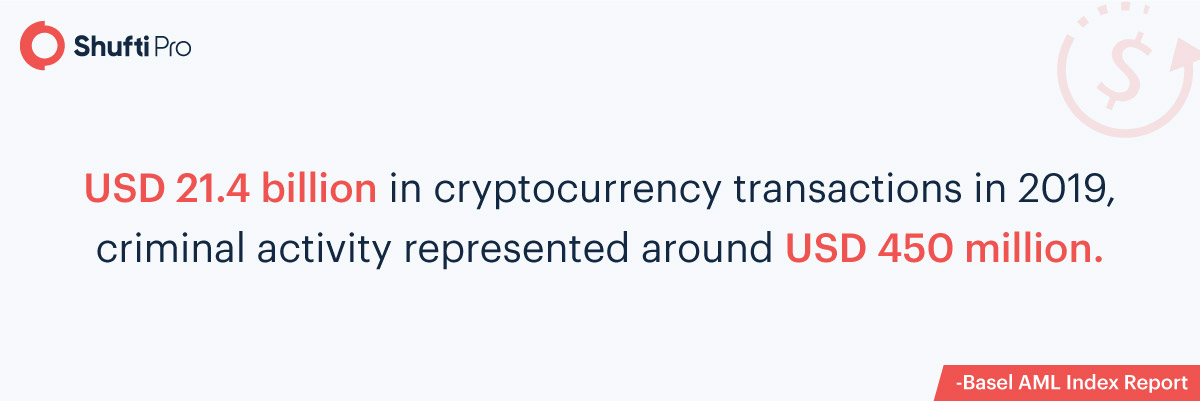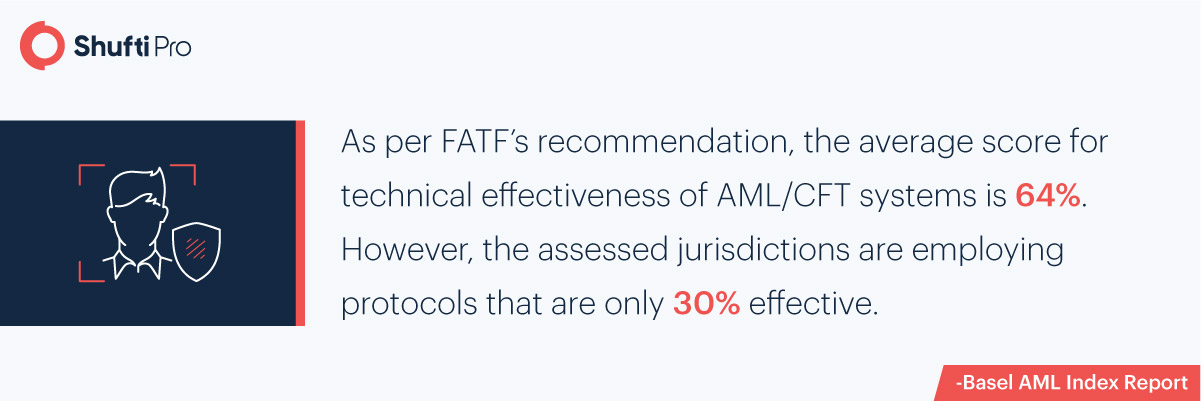Basel AML Index 2021 – Evaluating the Risk of Money Laundering Worldwide

The threat for money laundering and terror financing continue to increase with global anti-money laundering (AML) non-compliance penalties soaring sky high in 2021. Around 17 banks were penalised in the first half of 2021 and the highest fine imposed was equivalent to $1,250,521,695.
The Basel AML Index report issued in September 2021 has evaluated around 200 countries and territories in the world. The surprising yet concerning ratings and scores depict a significant shift of AML/CFT compliance policies across jurisdictions. Where some territories have enforced robust protocols, many were found to have vulnerabilities in the AML/CFT systems.
This blog highlights all important aspects of the Basel AML Index Report 2021 along with the risk rating and scores assigned to the evaluated regions.
What is the Basel AML Index?
The Basel AML Index is an independent annual ranking that evaluates financial crime risks across the globe. The first report was issued in 2012 and scores jurisdictions on the basis of:
- Effectiveness of AML/CFT systems
- Bribery and corruption
- Legal and political risks
- Public accountability and transparency
- Financial transparency and standards
2021 AML Risk Trends and Ratings
As per the report, virtual assets or cryptocurrencies, effectiveness of AML/CFT systems, beneficial ownership, and designated non-financial businesses and professionals (DNFBPs) are the major anti-money laundering risk trends in 2021 and beyond.
Virtual Assets
With many attributes of virtual assets in favour of the economy (for instance, they can increase financial inclusion if adopted on a large scale), there are many features favourable for criminals. Anonymity allows launderers to hide their illegally earned money and lack of regulations is another major setback of the industry.

The Financial Actions Task Force (FATF) in 2018 revised its Recommendation 15 to encourage countries to follow a risk-based approach for Virtual Asset Service Providers (VASPs) as well. The level of money laundering and terror financing risk they pose to the region is significantly high. As per the revised recommendation, all virtual assets must be licensed, transactions above $1,000 must be evaluated under enhanced due diligence (EDD) policies, and suspicious activity reports (SARs) must be submitted whenever required.
The Basel Report further revealed that:
- Out of the assessed jurisdictions, 19 have downgraded their risk scores, five have managed to maintain, and three have improved
- The average compliance score has reduced to 60% from 70%
- Out of the 10 jurisdictions evaluated for FATF’s Mutual Evaluation Reports, only three were largely compliant, five were partially compliant, and two were non-compliant

Suggested: FATF’s Travel Rule: A New Dawn of Regulations for Virtual Asset Services
AML Systems
The effectiveness of anti-money laundering (AML) systems is another parameter for evaluating risk and scoring countries. Last year’s report revealed that many regions of the world have employed poor AML/CFT protocols. In addition to this, there is no sign of improvement in the AML/CFT system in these countries and territories.

Indicating an unsatisfactory enforcement of AML/CFT measures, the report states that
- Average effectiveness for preventing ML/TF was 27% compared to 31% for enforcement of the solutions
- 17% of the evaluated jurisdictions scored zero for effectiveness of the preventive measures
- Nine jurisdictions scored zero in both enforcement and prevention
- Only UK and Spain have achieved the highest score in prevention and enforcement which is 67% or above
DNFBPs
Lastly, the report evaluated designated non-financial businesses and persons (DNFBPs) and revealed that there’s a large gap in AML/CFT regulations and systems for these entities. The issue must be addressed as soon as possible before criminal activities target companies in this sector more often.
The evaluation suggests that Customer Due Diligence protocols like the ones for the financial industry must be followed for DNFBPs as well. Out of the assessed regions:
- 12 are rated as R.22 (FATF’s Recommendation 22) non-compliant to the CDD requirements for DNFBPs
- 8 jurisdictions fully comply with R.22 while 17 only comply with R.10
Basel AML Index – Score and Ranking
All the evaluated regions have been scored and ranked for the level of money laundering and terror financing they have. Here are 35 regions from this assessment ordered from highest to the lowest rank.
Country |
Rank |
Score |
| Haiti | 1 | 8.49 |
| Dem. Rep. of Congo | 2 | 8.39 |
| Mauritania | 3 | 8.13 |
| Myanmar | 4 | 7.83 |
| Mozambique | 5 | 7.71 |
| Cayman Islands | 6 | 7.66 |
| Madagascar | 7 | 7.40 |
| Mali | 8 | 7.37 |
| Senegal | 9 | 7.25 |
| Uganda | 10 | 7.18 |
| Cambodia | 11 | 7.13 |
| Zimbabwe | 12 | 6.79 |
| Burkina Faso | 13 | 6.77 |
| Ethiopia | 14 | 6.77 |
| Pakistan | 28 | 6.00 |
| Panama | 29 | 6.00 |
| Tajikistan | 30 | 5.97 |
| Macao, China | 31 | 5.93 |
| United Arab Emirates | 32 | 5.90 |
| Bangladesh | 33 | 5.84 |
| Barbados | 34 | 5.82 |
| Malawi | 35 | 5.78 |
| Jamaica | 36 | 5.77 |
| Philippines | 37 | 5.76 |
| Cuba | 38 | 5.75 |
| New Zealand | 101 | 3.53 |
| Lithuania | 102 | 3.51 |
| Denmark | 103 | 3.46 |
| San Marino | 104 | 3.42 |
| Sweden | 105 | 3.36 |
| Norway | 106 | 3.35 |
| Slovenia | 107 | 3.30 |
| Cook Island | 108 | 3.13 |
| Finland | 109 | 3.06 |
| Andorra | 110 | 2.73 |
Source: Basel Index AML Report 2021
Key Takeaways
Money laundering and terror financing risks continue to increase with time. Be it a Mutual Evaluation Report by the FATF or Basel AML Index Report, all assessments reveal that the situation might get worse. Many regions have to reconsider their AML/CFT policies and systems to combat the rising number of financial crime cases. As per the Basel Report, ineffective AML systems have led to the rise in money laundering and terror financing activities.
One way of dealing with the increasing FinCrime activities is employing an AI-powered AML screening solution. Shufti’s AML suite that screens every entity against 1700+ global watchlists and delivers 98.6% accurate results so that organisations can deal with legitimate entities only.
Want to know more about AML screening? Get in touch with our experts right away!

 Explore Now
Explore Now













